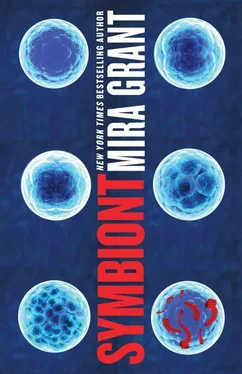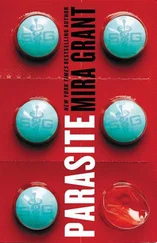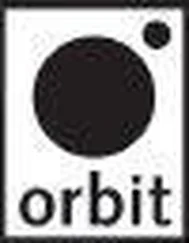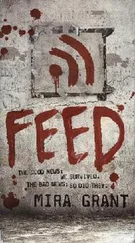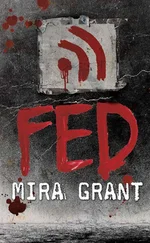“Dr. Banks would get it for research purposes.” Dawning horror was coiling in my stomach. I tried to tamp it down, demanding, “But what good would that do? All he’d get would be a dead worm and a deader girl. There’s not much to learn from that.”
“Tapeworms are hardy, Sal. It’s true that your current body wouldn’t survive the loss of your human host; you’re too deeply integrated to be removed. But all he’d need is a single viable proglottid to grow a new worm with your exact genetic makeup. He could create another you under controlled lab conditions. He’s never had a chimera of his own—I’ve had people sabotaging his research every time it looked like he was getting close. Creating another iteration of you wouldn’t require the same level of research; you’ve made all the modifications necessary for a successful joining already, all by yourself. He could exploit that.”
“What are you talking about?”
“You were built with a DNA profile,” she said. “You found a way, instinctively, to modify it enough to let you take Sally Mitchell’s body as your own. That’s normal. Every baseline worm expresses itself differently. We could hatch a thousand eggs from the same batch that made you and get a thousand slightly different results—but your body is hermaphroditic, and every egg it generates will be a tiny, perfect clone of you, Sal. Banks could use that. He could grow a chimera of his own, and then figure out how to make the process easier… or how to stop it altogether.”
I stared at her, aghast. “Are you saying that Dr. Banks left weak blood vessels in my brain because he wanted me to have an aneurism and die?”
“So that he could take samples and culture eggs from your original body, yes, and possibly move it into a new host,” said Dr. Cale. “Observing you throughout the life cycle of your original host would have been a secondary goal. I admit, I can see the temptation. It would have been a perfect, untouched system, if only it had been a computer model instead of a living person.”
“I don’t think he thinks of me as a person,” I said.
“You may not be a human, Sal, but you’re a person. Anyone who can think and speak and be upset by someone’s plans for them is a person.” Dr. Cale wheeled herself closer. “Which brings us to the next matter at hand. Those blood vessels need to be repaired, or you’re going to keep having incidents like this one.”
“I thought I fainted because I lost too much blood,” I said weakly.
“You didn’t lose that much blood, but what you did lose was enough to strain your system,” she said. “That was really the problem. Once your body begins to worry about circulation, things will go downhill for you very quickly, because you don’t have much in the way of a reserve. We need to operate.”
The thought of being unconscious on a table while someone sliced into my head filled me with terror. I didn’t want them so close to my vulnerable body. I needed my skull to keep people away from it. But that wasn’t going to do me much good if the channels that carried the food I needed to survive were blocked. “Can we do that here?” I asked, inwardly amazed at how calm I sounded. Why, it was almost as if I weren’t asking someone to cut me open.
Dr. Cale shook her head. “No, we can’t,” she said. “I have excellent surgical facilities—I can even perform limited brain surgery, when there’s a need for it—but what you need is too delicate. It’s going to require a specialist, and equipment that’s much more advanced than I have access to here. We’re going to need to take you to a hospital.”
“Nathan has admitting privileges at the hospital where he works,” I said slowly.
“Yes, and that hospital is in San Francisco, and everyone there knows him.” Dr. Cale shook her head for the second time in under a minute. A look of deep regret transfused her features. Somehow, that didn’t make me feel any better. “We’d be arrested before we even managed to get you on the table.”
“So what, then? I can’t just stay here and try not to get upset about anything. The sleepwalkers are getting worse. That sort of makes staying calm impossible.”
“I’m going to need you to trust me.”
I stared at her. “That’s what I’ve been doing since I called you.”
“No, Sal. You’ve been playing at trust, but what I’m about to ask you to do… you need to be absolutely sure that you believe I have your best interests at heart. Otherwise, we can wait. See if the crisis passes. Those blood vessels should hold for a while longer.” Dr. Cale looked at me, regret fading to leave her face a featureless mask. “I can’t say for how long.”
“Then I guess I have to trust you,” I said, trying to sound more sincere than I felt. I didn’t know if I would ever really trust Dr. Cale, but I didn’t have any options left—not unless I wanted to die. Choosing to live meant choosing to trust her, whether I wanted to or not. “Let’s open the broken doors all the way.”
Dr. Cale nodded. “I’ll set things up,” she said, and turned her wheelchair and rolled away, leaving me alone and wondering what I had just agreed to let her do to me.
Take the bread and take the salt,
Know that this is not your fault;
Take the things you need, for you will not be coming back.
Pause before you shut the door,
Look back once, and never more.
Take a breath and take a step, committed to this track.
The broken doors are kept in places ancient and unknown.
My darling ones, be careful now, and don’t go out alone.
–FROM
DON’T GO OUT ALONE , BY SIMONE KIMBERLEY, PUBLISHED 2006 BY LIGHTHOUSE PRESS. CURRENTLY OUT OF PRINT.
The big question of the hour is pretty obvious: it’s the question we’ve been asking every scientist from Galileo to Oppenheimer, from Frankenstein to Moreau. Do I feel like we at SymboGen are trying to play God?
Well, there’s a reason that two of the scientists I just named don’t really exist. I think that mankind is constantly trying to play God: I would argue that playing God is exactly what God, if He exists, would want us to do. He didn’t create thinking creatures with the intent that we would never think. That would be silly. He didn’t create creatures that were capable of manipulating and remaking our environment with the intent that we would sit idle and never create anything. That would be a waste.
If God exists—and I am reserving my final opinion on the matter until I die and meet Him—then He is a scientist, and by creating man, he was playing at being me for a little while. So I can’t imagine that He would mind if I wanted to try putting the shoe on the other foot, can you?
–FROM
KING OF THE WORMS , AN INTERVIEW WITH DR. STEVEN BANKS, CO-FOUNDER OF SYMBOGEN. ORIGINALLY PUBLISHED IN
ROLLING STONE , FEBRUARY 2027
The plan was simple enough on paper. Fang and Daisy—another of Dr. Cale’s employees, a parasitologist by trade, before she had left SymboGen to work with Dr. Cale on the D. symbogenesis issue—both had admitting privileges at the nearby John Muir Medical Center, a vast, sprawling hospital complex where no one could be sure of knowing absolutely everyone else. They would sneak me into an unoccupied operating theater, program the machines that handled microsurgery to deal with the weakened blood vessels connecting to my brain, and keep watch while the surgical tools took care of the job. Fang was a licensed neurosurgeon, and both of them were blazingly loyal to Dr. Cale, for reasons I didn’t yet fully understand.
There were a lot of things that could go wrong with this plan, starting when we left the bowling alley and progressing from there. What if someone at the hospital recognized me? What if someone at the hospital recognized Nathan ? He’d given speeches on parasitology at hospitals all over Northern California, and he didn’t usually attend random brain surgeries.
Читать дальше
